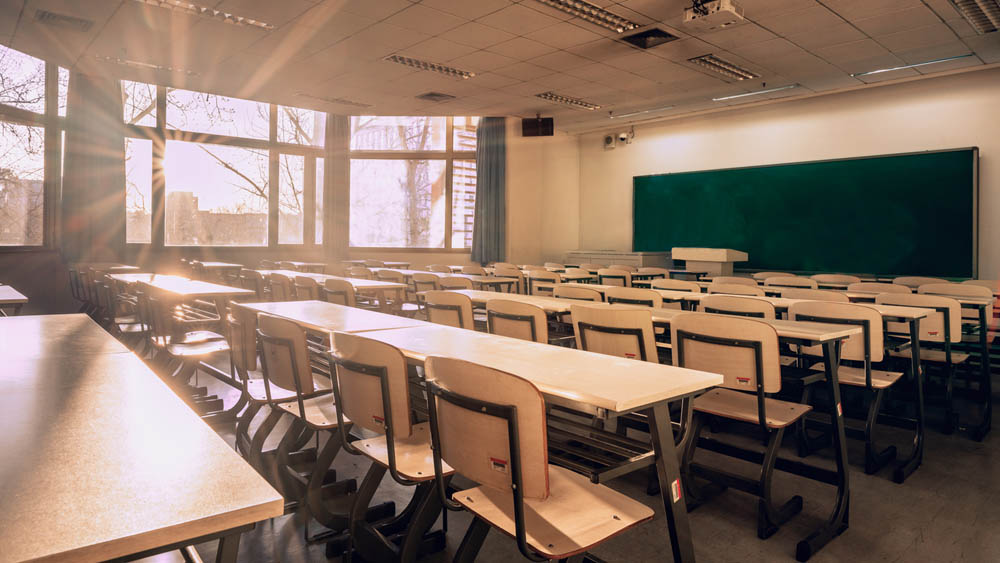Betsy DeVos is preparing to undo another pernicious Obama school policy.
The Trump administration spent much of its first year blocking or delaying its predecessor’s regulations. Thankfully, that work continues apace in year two. Any day now, look for the Education Department to halt implementation of an Obama -era rule on racial disparities in special education that was set to take full effect in July.
Black students are more likely than white students to be placed in special-education classes, and the Obama administration attributed the disparity (along with nearly every black-white gap) to racial bias. Thus in late 2016, weeks before leaving office, Obama officials issued a rule that threatened school districts with financial penalties if they didn’t achieve racial balance in special ed.
The rule, which would effectively impose racial quotas, is likely unconstitutional. Moreover, academic research shows that racial bias is not the cause of disproportionate representation of black pupils in special ed. Anyone who cares about the prospects of minority youngsters should welcome the Trump administration’s decision to put the rule on hold.
A 2015 study by scholars at UC Irvine and Penn State University found that black children are more likely than white children to be born prematurely and have high levels of lead in their blood, among other factors that often result in learning disabilities and speech impairments. When otherwise similar groups of black and white adolescents were compared, the data didn’t show that black students were more likely to be placed in special education classes. In fact, it showed the opposite: “The real problem is that black children are underrepresented in special-education classes when compared with white children with similar levels of academic achievement, behavior and family economic resources,” two of the authors, Paul Morgan and George Farkas, wrote in an op-ed.
To the extent that the Obama-era rule could make teachers and administrators fearing accusations of racial bias too skittish to do their jobs properly, it potentially puts at-risk children at even more risk. Do we want racial proportionality to become more important than matching students with the educational tools that will serve them best? Do we want school districts identifying special-needs kids based on the evidence or based on a desire to stay out of the federal government’s crosshairs?
Those questions are not theoretical. The Obama Education Department’s obsession with disparate-impact analysis also led it to pressure schools into disciplining fewer black students, even if those students represented a higher proportion of troublemakers. In 2016 and 2017, President Obama and his wife visited Washington, D.C., schools that boasted fewer suspensions and higher graduation rates. But a Washington Post investigation last year revealed that administrators at some D.C. schools were underreporting the number of suspensions. Other schools were juicing graduation numbers by not counting low-performing students in the graduating class and granting diplomas to chronically absent kids who didn’t qualify for a degree. “This is [the] biggest way to keep a community down,” a black teacher told NPR. “To graduate students who aren’t qualified, send them off to college unprepared, so they return to the community to continue the cycle.”
Education Secretary Betsy DeVos has said that her team is “looking closely” at the Obama school-suspension guidance, which was issued in 2014 via a “Dear Colleague” letter and could be rescinded with another one. Let’s hope she gets on with it. Cities from Los Angeles to Chicago to New York provide evidence that reducing school suspensions has increased classroom disorder, which works to the detriment of those minority students who are in school to get an education, not make mischief. A study of Wisconsin schools published last month by the Wisconsin Institute for Law and Liberty noted that “softer discipline policies, pushed by the Obama Administration, are having a negative impact on student test scores.” Is it any shock that when undisciplined students aren’t removed from the classroom, less learning takes place?
Obama administration officials and their progressive supporters used disparate-impact analysis to dodge a discussion about differences in student behavior, which might have brought to the surface other uncomfortable facts. Boys are suspended at higher rates than girls, and whites are suspended at higher rates than Asians. Moreover, a significant share of teachers and other staff in many majority-minority schools are of the same race and ethnicity as the students, which somewhat undermines “hidden bias” claims.
The previous administration took sides with bad actors out of political expediency. Mrs. DeVos’s focus should be on students who just want a safe learning environment and a decent education.
This piece originally appeared in The Wall Street Journal
______________________
Jason L. Riley is a senior fellow at the Manhattan Institute, a columnist at The Wall Street Journal, and a Fox News commentator.
This piece originally appeared in The Wall Street Journal
